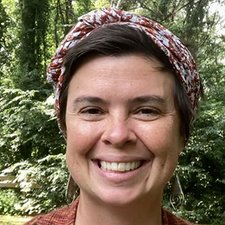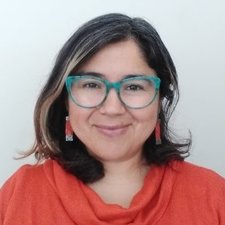Copyright ©2008-2026 Università Cattolica del Sacro Cuore - - Cookie Policy - Cookie settings - Privacy
Copyright ©2008-2026 Università Cattolica del Sacro Cuore - - Cookie Policy - Cookie settings - Privacy

Title of speech
The intricate ethics of participatory research: negotiating partnership, power and boundaries
Abstract
Participatory research is becoming increasingly popular. This entails people with direct experience of, or interest in, the topic of study playing a role in all or some of the research design and process. This presentation will discuss some of the ethical challenges arising in research that entails academics or professional practitioners working together with people who use social and health care services and/or members of community-based groups. It may be tempting to assume that potential ethical challenges (e.g. avoiding exploitation, ensuring mutual respect, agreeing ownership of intellectual property) can be anticipated, mitigated in advance and checked off by Research Ethics Committees or Institutional Review Boards. However, this rarely reflects the messy reality of what happens in practice. This presentation outlines some of the day-to-day and unexpected ethical challenges negotiated by people from different backgrounds working together as co-researchers. It draws on case examples from around the world. Many are accounts of ‘small’ issues occurring during the research process, often not reported in publications, for example: should a community researcher in Southern Africa adapt research questions to avoid hurting people she knows?; how should a Dutch academic respond to a community based co-researcher’s request to correct her written language?; where are the boundaries between ‘friend’ and ’co-researcher’ for a UK PhD student?; should a Canadian researcher also function as a therapist during a research project? These questions are not easily answered by Research Ethics Committees, or through consulting ethical codes. The responses rely on careful reflection and deliberation between parties involved, based on particular circumstances and relationships. This requires a situated, relationship-based approach to ethics, drawing on an ethics of care, virtue ethics and the practice of ‘ethics work’, details of which will be outlined in this presentation.
Biography
Sarah Banks is a Professor in the Department of Sociology, Durham University, UK. She co-founded the Centre for Social Justice and Community Action (CSJCA), which promotes and supports participatory action research for social justice. She is known for her research and publications in the fields of social work ethics, community development and ethics in community-based participatory research. Recent participatory action research projects include Imagine – connecting communities through research and work on predatory lending in low-income neighbourhoods. Through CSJCA she has worked to develop ethical guidelines for participatory research and is co-editor with Mary Brydon-Miller of Ethics in participatory research for health and social wellbeing: Cases and commentaries (Routledge, 2019). Her popular book on Ethics and Values in Social Work (Bloomsbury, 2021) is now in its fifth edition. Click to know more about Sarah Banks

Title of speech
The relational foundation of Social work: implications for Social work research
Abstract
The connection between Social work and social relationships can be seen as an obvious one, but it is complex indeed. The speech aims to explore a set of analytical concepts for a better understanding of the deep “social” (relational) nature of Social work practice. Some basic semantic, epistemological, and methodological issues regarding this connection will be briefly discussed, with particular attention to the dynamics of networking in coping processes. The contribution’s background includes general considerations about the scientific nature and the "epistemological object" of Social work, as well as about the best placement of the discipline in the ongoing debate between the classic paradigms of determinism, on one hand, and of phenomenology, on the other one. The ambivalent meanings that the widely used term "social" can assume within the label "Social work" will be analyzed, as well as the various possible connotations of the term "relationship", which are not all equally significant and useful in the present scientific debate. A set of operative coordinates will be proposed to highlight the crucial points of a professional Social work that is authentically relational (or relationship-based). These concepts support researchers to better identify, within the broader field of social and sociological research, the specific/essential research focuses for theoretical and empirical studies about Social work.
Biography
Full professor in Social Work in the Faculty of Political and Social sciences and in the Sociology Department at the Università Cattolica in Milan, Director of the Relational Social Work Research Centre. His research interests are:
Professor Folgheraiter is the founder of the PhD program in Social work and personal social services at Università Cattolica, he developed the Relational Social Work approach in Italy, he is editor in chief of the scientific journal Relational social work edited by Centro Studi Erickson. He authored several national and international publications on the topic of Social Work Theory and Methods, and he is the Editor of the international Review “Relational Social Work”. He has led numerous research in the field of Social Work and Welfare Policies. He won the International Social Work Journal Prize for the best paper published in 2012 (along with Prof. Maria Luisa Raineri), with the paper entitled A critical analysis of the social work definition according to the relational paradigm. He is Honorary Professor at the Institute of Applied Social Sciences at the University of Birmingham (UK). Click to know more about Fabio Folgheraiter

Title of speech
Community-Based, Participatory Action Research for Climate Justice
Abstract
As the global climate crisis and the intersecting injustices (e.g., chronic racism, sexism, poverty, human rights and nature rights violations) continue to exacerbate, community-based, participatory action research is becoming increasingly utilized. This presentation offers concrete examples from Dr. Powers’ own community engaged research as an applied scholar, including an ecosystem enhancement project at a park connected to an active adult center, climate migration research, inclusive art-based and ecotherapy projects, and a photovoice project at a local sustainable farm, whose mission is to connect people with intellectual and developmental disabilities to the larger community through shared living and work. Dr. Powers will also include concrete tips when considering using these techniques, including pitfalls to avoid. Discussion includes implications for social workers, other professionals, and communities, as it relates to the importance of not only community-based, participatory research methods, but also the urgency of action-oriented research from an ecosocial worldview in times of climate crisis.
Biography
Dr. Meredith C.F. Powers is an Assistant Professor in the Department of Social Work at UNC Greensboro, USA. She teaches and conducts community engaged scholarship on topics of climate justice, climate migration, the ecosocial worldview, and eco-therapeutic practices for wellbeing. Dr. Powers is the Founder and Director of the Climate Justice Program of the International Federation of Social Workers. She also established and co-administers the global Green/EcoSocial Work Collaborative Network. She has presented her research nationally and internationally, including being invited as a keynote speaker at the United Nations for World Social Work Day (2018). Dr. Powers was recently a keynote speaker on “Collaboration and Current Efforts for Climate Justice” and was honored with the inaugural “Environmental Justice Champion Award” at the 2021. Virtual Conference on Environmental Justice, hosted by the Institute for Social Work and Environmental Justice in partnership with Adelphi University. Click to know more about Meredith C.F. Powers

Title of speech
The rediscovery of community and the role of Participatory Research
Abstract
The field of community development is rapidly gaining interest as it comes to social work and social innovation. Community building can be regarded as a countermovement to neoliberal individualisation and its negative side-effects like loneliness and polarisation. It seems like the notion of community is rediscovered and reinstalled. Social workers can play an important role in supporting communities to recognize their own strengths and to use these for building social capital. Social work research can play a significant important role in community social work. Researchers can investigate, describe, and evaluate community interventions. They can support processes of community building by conducting participatory action research, and by designing new approaches that social workers, other professionals and citizens can use. In this presentation, Jean Pierre Wilken will highlight current developments, and illustrate with examples from research how social work can engage in community innovation.
Biography
Professor of Social work at the University of Applied Sciences Utrecht, Netherlands His research interests are:
Professor Wilken is leader of the Research Group Participation, Care and Support, of the Research Centre for Social Innovation at HU University of Applied Sciences Utrecht (Netherlands). He is also professor of Community Development and Well-Being at Tartu University (Estonia) and visiting professor connected to the PhD Programme in Social Work and Personal Social Services at the University of Milan (Italy). He is involved in several European research projects, one of these being a large Erasmus+ project on Experiential knowledge in higher education. Click to know more about Jean-Pierre Wilken

Title of speech
Being co-researchers in Social work. My experience as young carer
Abstract
In 2018 I participated in a PhD research, thus becoming, without apparent merit, a co-researcher. I shared my experience as young caregiver with two girls, Samia and Margherita, whom I had never met before but who had in common with me a story of sacrifice, effort, and self-denial. I had never reflected on the meaning of my life experience as a daughter and very young caregivers of a woman with cancer, because she was my mom and I would have done anything to relieve her of pain and worries. The research, indeed, focused on the experience of children and teen caring for a family member in need. Our collaboration, which lasted for almost two years, resulted in the creation of the first Italian definition of young caregiver, a questionnaire to identify them among middle school students, and a focus group of young caregivers. During the research path, my participation took on different meanings for me. One of them is “remembering” because to get to know each other, we had to share our experiences and I wanted with all my heart to go back to when my mom was still here. Another one is "naming" as it helped me understand the meaning of my being a caregiver and how it affected my life. But I believe that the one that best defines my experience as co-researcher is the word “opportunity.” Seeing myself in the other participants and feeling their sufferings was a powerful experience, which made me redefine myself, moved me into action, and gave me a sense of commitment, new possibilities, thus opening a new chapter in my life story. When the research was concluded, I decided with other one co-researcher and other girl to found the Young Care Italia Association, the first Italian association for young caregivers.
Biography
Expert by experience co-researcher. She participated as a co-researcher in a research carried out in Italy on the topic of young caregivers. Alongside the academic researcher and together with other experts by experience, she formed a steering group that conceived and implemented the research phases from defining the research question to disseminating the results. The research carried out with a participatory approach has allowed the creation of change actions, particularly the foundation of an association aimed at supporting young caregivers and their families, as well as professionals who deal with the issue. Chiara is a member of the Association Young Care Italia and will be able to share her experience to highlight the potential of the connections between research and action from the point of view of co-researchers.

Title of speech
Geopolitics of knowledge and social work: decolonial perspectives for epistemic justice
Abstract
"Decolonising" implies dismantling the "colonial" criteria with which an object of knowledge is epistemically constructed. From a decolonial perspective, it is assumed that these criteria conceal a dark side: the imposition of a rationality based on "epistemicide", that is, on the annihilation of the original knowledge of colonised peoples, in addition to the dispossession of their material wealth. This is not a story of the past. The "colonial" criteria of "valid" knowledge are reproduced today and are manifested in the claim to objectivity and political neutrality of social research, and in the silence of the research participants. The ways in which subaltern groups create knowledge are still invisible or ignored by mainstream academic communities. Particularly in the Social Work community, coloniality of knowledge is expressed in the publications of highly-rated journals. For example, authors whose mother tongue is not English are a minority, as the study published by Roche & Flynn in 2020 highlighted. Is it possible to decolonise the logic of social work research in a world dominated by the rationality of cognitive capitalism, that demands us acceleration, measurable outputs, and competitive achievements? What can we gain and what can we lose in the adventure of decolonising social work research? What does "decolonising social work research" mean in practical terms? In this presentation I propose to address these questions, assuming that i) epistemic justice is a dimension of social justice - an ethical principle that guides the social work profession; and ii) while contributing to social justice, decolonising knowledge has ethical, epistemic, and methodological requests. From the above, a new question will be raised to critically reflect: are we still available - or not - to decolonise the way we do social work research?
Biography
Associate Professor in the Social Work Department at the Universidad de Chile. BSW, MSW (P. Catholic University of Chile); PhD in Social Work (University of Bristol, England). Her research interests are:
Professor Muñoz-Arce is one of the leading experts on critical social work in South America. She has participated in and led international research projects on the theme of critical social work, the relationship between research and intervention, and professional resistances in frontline implementation of social programmes. She is Editor-in-Chief of Critical Proposals in Social Work Journal. She is a member of the Social Work Action Network- International and the Decolonial Social Work Network. Click to know more about Giannina Muñoz Arce